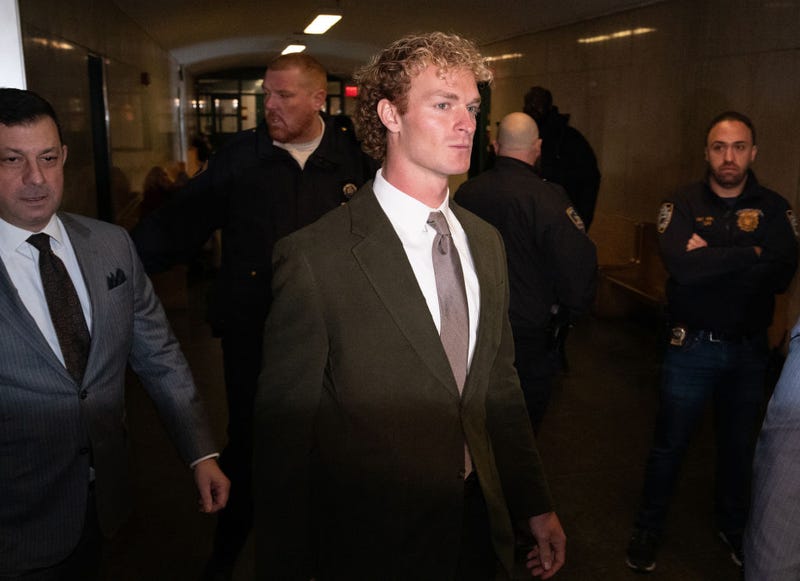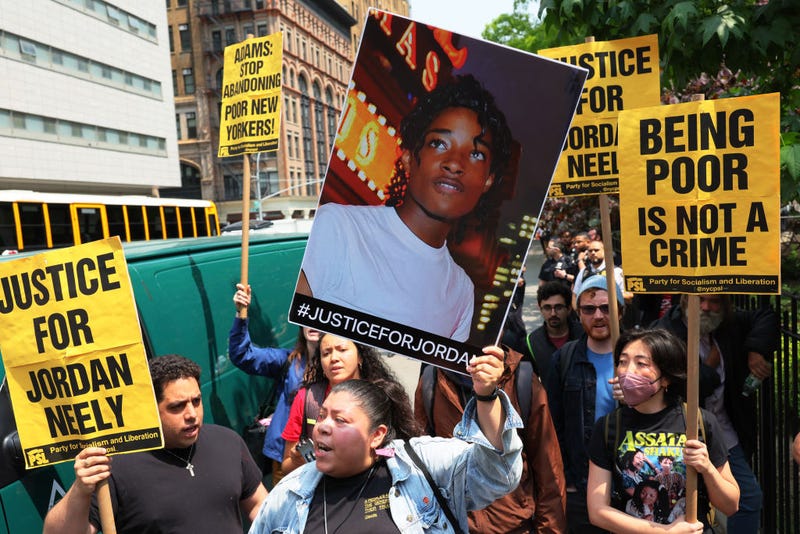
NEW YORK (1010 WINS) — A judge on Friday denied a motion from Daniel Penny’s defense team that would suppress several statements he made to officials, instead allowing all evidence to be admitted in the impending trial charging him in the chokehold death of Jordan Neely on a Manhattan subway train last year.
Penny, 25, was in court for the second day in a row on Friday for a pre-trial hearing meant to decide what evidence from both the defense and prosecution is admissible in the trial, which will begin jury selection on Oct. 21.
After hearing from the defense, prosecution and five witnesses—including a sergeant, detective and three police officers—Judge Maxwell Wiley denied all motions to suppress evidence, admitting six properly noticed statements made by Penny to law enforcement.
Penny, a former Marine, has pleaded not guilty to second-degree manslaughter and criminally negligent homicide, for which he faces up to 15 years and four years in prison, respectively.
Penny is accused of placing Neely in a deadly chokehold on an F train at the Broadway-Lafayette Street subway station in SoHo on May 1, 2023.
Neely, who struggled with homelessness and mental illness, was shouting and asking for money on the train that afternoon. He was described as “acting erratically” by some witnesses, but others said while he was causing a disturbance, it was not physical.
Penny pinned Neely to the ground with the aid of two other passengers and held him in a chokehold. Neely lost consciousness, and the medical examiner found his cause of death to be compression of the neck.

Penny and his attorneys have maintained that he acted in self-defense and acted to “protect the lives of his fellow riders.”
In their filing, Penny’s attorneys motioned to exclude several statements he made to the law enforcement authorities at the scene of the incident, and then during an interview at the precinct stationhouse, on the basis of his Miranda rights and probable cause.
“To the extent that officers directed the defendant in a limiting way while on scene, it was consistent with their management of an active crime scene and not the level of seizure that would require Miranda warnings,” Wiley wrote in his decision regarding statements on the scene.
Wiley also found the full interview conducted by detectives after the incident admissible, noting that Penny was advised of and subsequently waived his Miranda rights, without force, coercion or promises.
“The existence of probable cause—or lack of it—is therefore not relevant to the admissibility of statements made by the defendant to law enforcement that day,” Wiley wrote.
